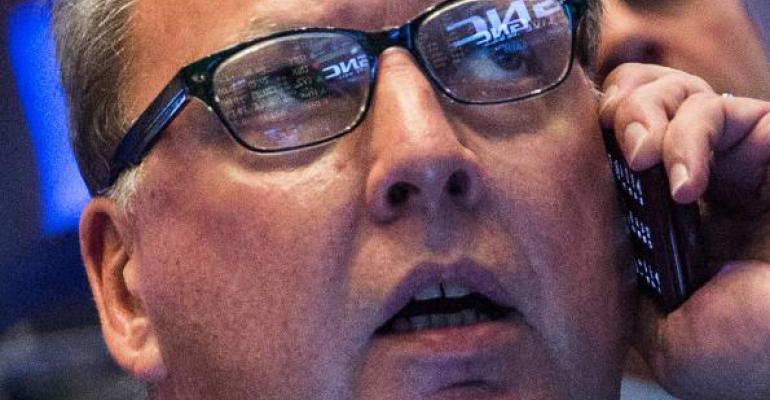By Matthew Martin
(Bloomberg) --Rich investors are shunning equities because of concerns about the political impact from Donald Trump’s administration and Brexit, according to Christian Nolting, chief investment officer at Deutsche Bank AG’s wealth management unit.
“People are still cautious; there is still demand for bonds and people are not ready to move into the more risky equity space,” Nolting said in an interview in Dubai. The perception “is that there are a lot of risks out there and a lot of uncertainty.”
Markets have been reeling from unexpected events including Britain’s vote to leave the European Union and the election of Trump as U.S. president. Populist candidates in the Netherlands, France and Germany are stoking fears of a breakup of the European Union, adding to the uncertainty. Deutsche Asset Management has cut European holdings in its multiasset funds to the lowest on record due to how European elections may impact markets.
Currencies are now one of the most important asset classes as investors keep cash on the sidelines or in bonds, Nolting said. “We don’t expect a massive shift from bonds into equities as equities still represent a different risk profile,” he said. Some larger clients will buy stocks if they are hedged but shares are not cheap, according to the CIO.
Great Rotation
Expectations of a massive shift from bonds into equities -- the so-called great rotation -- has split financial market observers. Charles Schwab Corp.’s chief global strategist Jeffrey Kleintop has said the trend has years to run, while Citigroup and Goldman Sachs analysts have questioned whether the trend is sustainable or even exists at all.
Political uncertainty will continue to affect markets this year, Credit Suisse Group AG Chief Executive Officer Tidjane Thiam said this week. Clients at the bank’s wealth management unit were holding higher cash balances late last year and looking to take “downside protection” against a fall in global markets, he said.
“We’re going to see a lot of volatility,” he said in an interview with Bloomberg Television. “I, like many people, worry that there’s too much comfort right now and maybe some uncertainties are under-estimated, particularly political ones, and as we get closer to some of those moments you’re likely to see spikes in volatility.”
Infrastructure Spending
The Trump administration is likely to pursue new infrastructure spending and lower the corporate tax rate, which will help U.S. markets, Nolting said. That’s likely to make corporate bonds more attractive as the policies reduce the probability of a recession in the next three years, he said.
Deutsche Bank Wealth Management favors emerging-market dollar bonds and prefers Asian investment-grade notes over those from Latin America due to the better political climate in the region, Nolting said.
It will take some time before investor become more confident about Europe, he said. “I wouldn’t expect people to see the outcome of say, the French elections, and then go massively in,” Nolting said. “It will take some time for investors to get used to this new environment.”
To contact the reporter on this story: Matthew Martin in Dubai at [email protected] To contact the editors responsible for this story: Neil Callanan at [email protected] ;Dale Crofts at [email protected] Cindy Roberts





